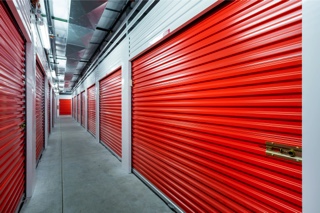When it’s time to prepare for a big move, you know it’s going to come with some costs. The moving company is one, of course — but there are plenty of other costs and fees to consider. So as you prepare your moving budget, use our moving costs checklist to make sure you’ve covered all your bases. It’s always better to be prepared than to be surprised!
Hiring a moving company
This is undoubtedly one of the larger costs of moving to a new home depending on how far of a move you have planned. A local move will be less expensive. Long-distance moving will be more expensive and will likely be priced by the weight or volume of your shipment.
To get the most accurate estimate possible, a good moving company should assess your shipment either in-person or using a detailed inventory process. According to Capital One, moving a studio apartment about 1,000 miles will average about $1,200 for moving services. Moving a 3-bedroom house the same distance is around $6,300.
Keep in mind that quotes can vary significantly depending on the shipping method you choose and the time frame you require. Get a few quotes to compare!

Upgrading moving insurance
For federally licensed moving companies, baseline moving insurance is minimal. You’ll only receive 60 cents per pound if any of your belongings are damaged in transit. Opting to upgrade your insurance will cost more, but will actually cover the value of your belongings in the case of an accident or mishap. Full valuation coverage moving insurance costs about 1% of the valuation of your items, which means that if you value your items at $50,000, full value protection insurance would cost about $500.
Additional moving services
Sometimes the basic moving services offered by your company don’t quite cover your needs. Whether it’s custom crating, piano hoisting, or disassembling your surround sound system, additional services typically come with additional fees. Your moving company may offer packages that meet your shipping needs or may include some specialized services, so ask about what they offer and how much they charge.
- Custom crating
- Upgrading to an Elite Shipping package may cover more of your needs
- Storage services
- Packing materials may be included with packing services or could be an additional cost
- Shuttle services may be required to transport your shipment from a moving hub to your home

Personal travel
Now that you have your belongings taken care of, decide how you will travel to your new home if it’s more than just a few miles away. Will you drive or fly? For some, driving allows them to transport things like plants, pets, or other personal items that the movers cannot take more easily. For others, flying is the way to go!
If you are driving, you’ll need to account for:
- The cost of gas
- Meals along the way
- Lodging for each night of the trip
If you are flying, you’ll need to account for:
- Airfare
- Baggage fees
- Meals
- Vehicle shipping if applicable. Shipping your vehicle while you fly can take the stress out of a move.
Costs at your new home
Once you’ve arrived, there are still additional costs to consider. If you purchased a home, you may need to begin some minor fixes or major renovations. You may still have closing costs to attend to, real estate fees to cover, and down payments to utility companies to get everything up and running.
If you are renting your home, you’ll have your security deposit and pet deposit (if you have one!), as well as possible utility deposits.
Lastly, you’ll probably need to purchase some additional appliances, at least a few new furniture pieces, and other odds and ends to make your new house a home. You might also want to hire a cleaning company to come and give your new home a good scrubbing before you begin to unpack and settle in.
Congratulations on planning for your new home! Let FlatRate Moving get you there, stress-free.
Get an estimate and inquire about add-on services!
The post A Moving Costs Checklist appeared first on Flatrate Moving.
Via Moving http://www.rssmix.com/
No comments:
Post a Comment